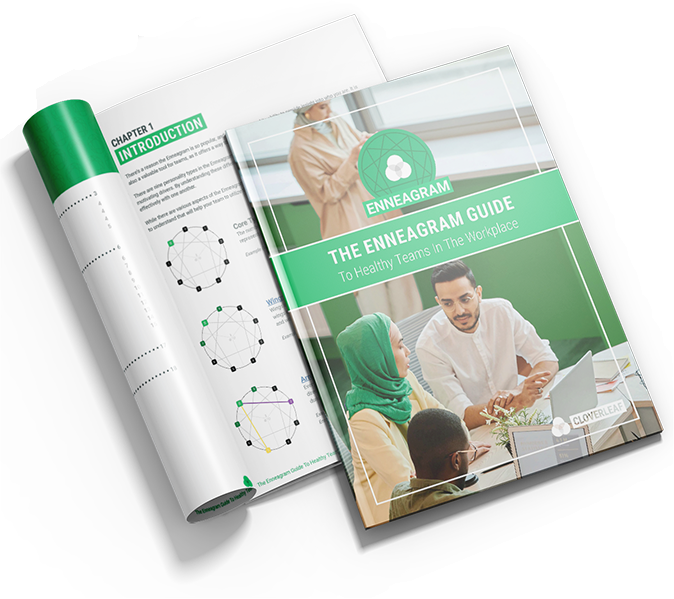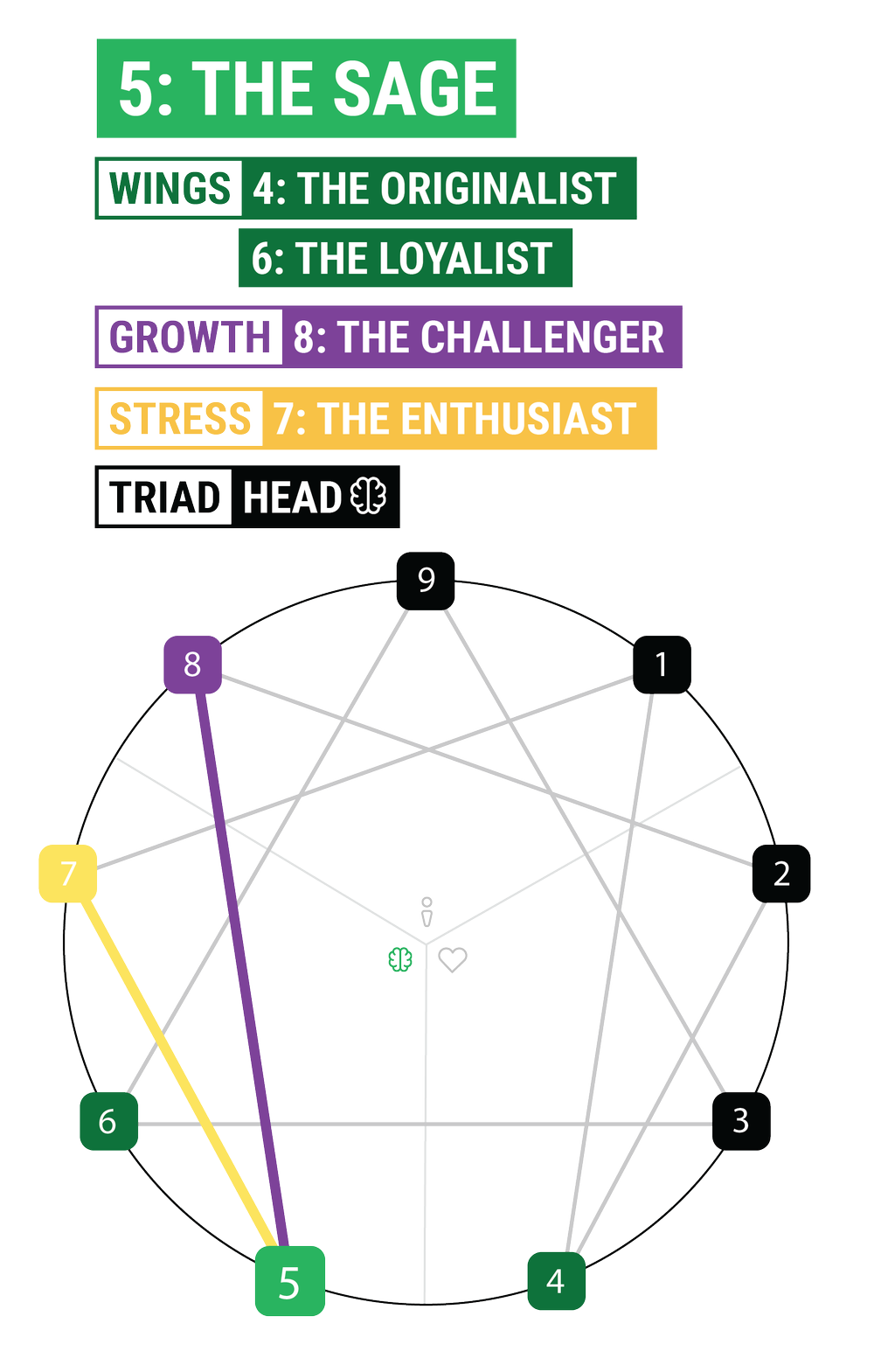The Sage: More Than a Thinker
You don’t just absorb knowledge—you pursue mastery. Where others skim the surface, you go deep, unraveling complexities, questioning assumptions, and seeking truth beyond what’s readily available.
Your mind is your most powerful tool, and you wield it with precision—analyzing, strategizing, and synthesizing information in ways that turn the abstract into the actionable. Whether it’s solving intricate problems, innovating behind the scenes, or uncovering hidden insights, you thrive when given the freedom to explore and think independently.
But with that independence comes the risk of detachment. The more you retreat into your inner world, the harder it can be to engage in the present. While others may crave connection, you often crave space—time to process, reflect, and conserve your energy. You may feel drained by excessive social demands or hesitant to engage in situations where you aren’t the expert.
You’re not just a thinker—you’re a Sage. Your wisdom isn’t just in what you know but in how you apply it. This guide will help you maximize your strengths, balance intellect with real-world connection, and thrive without feeling overwhelmed.

The Enneagram Guide To Healthy Teams
Core Motivations & Fears of Type 5s
A common misconception about Type 5s is that they are emotionally detached or socially withdrawn. In reality, Fives aren’t avoiding people—they’re preserving their energy. You’re motivated by a deep need for understanding, autonomy, and mastery. You don’t just want knowledge—you want to feel fully equipped before engaging with the world.
Fives make up a unique and highly analytical part of the Enneagram, often bringing insight, logic, and strategic problem-solving into their work and relationships. You thrive when you have the space to think, process, and explore ideas without pressure.
But beneath this quest for knowledge lie some powerful fears:
- Fear of incompetence—the worry that you won’t know enough or that others will expose a gap in your expertise.
- Fear of emotional overwhelm—feeling drained by social expectations or pressured to express emotions you’re still processing internally.
- Fear of dependency—avoiding situations where you might have to rely on others, preferring to be fully self-sufficient.
Your intellectual depth is a strength, but it can also lead to overthinking, withdrawal, or hesitation to engage before feeling “ready.” This guide will help you:
✔ Use your deep thinking skills in ways that make an impact—rather than keeping your knowledge to yourself.
✔ Balance logic with connection—so you can build relationships without feeling drained.
✔ Develop confidence in action—learn to apply what you know instead of waiting for the perfect moment.
Strengths of Enneagram 5: The Sage
As a Type 5, your strengths go beyond intelligence—you are a master of depth and precision. You don’t just skim the surface; you immerse yourself in knowledge, uncovering insights others overlook. Where some settle for broad understanding, you pursue expertise, seeking to know more, understand better, and refine your thinking.
Your independence and analytical mind give you a unique advantage. You can see patterns others miss, break down complex problems, and remain objective even in high-pressure situations. But this same depth can sometimes create distance, making it easy to retreat into your thoughts rather than engaging with people around you.
You’re not just an intellectual—you’re a visionary. This guide will show you how to maximize your strengths, share your knowledge effectively, and thrive without feeling drained.
Core Strengths of Type 5
☘️ Deep Thinker & Expert – You don’t just learn—you master topics through focused research and independent study.
☘️ Highly Observant – You notice details, patterns, and underlying systems that others miss.
☘️ Logical & Objective – You excel at analyzing situations without emotional bias, making you a trusted problem-solver.
☘️ Independent & Self-Sufficient – You thrive when working autonomously and managing your own time.
☘️ Great Problem-Solver – You enjoy intellectual challenges and finding innovative solutions others might not consider.
☘️ Strategic & Visionary – Your ability to see long-term implications and big-picture connections helps teams think ahead.
What This Means in Work & Life
Your intellectual depth makes you a valuable expert and strategist, whether you’re solving complex problems, innovating new ideas, or guiding teams toward informed decisions. You see connections others miss, making you an essential resource in any field that values analysis, research, and insight.
But these same strengths can sometimes lead to isolation, over-intellectualizing, or difficulty engaging in collaborative environments. You may prefer independence, but great ideas gain power when shared and applied.
💡 Coaching Insight: Your knowledge is most impactful when it’s accessible. Instead of keeping insights to yourself, practice sharing ideas before they feel “perfect.” Engage in discussions, test your theories, and trust that even unfinished thoughts can add value.
✔ New Habit: When analyzing a challenge, instead of researching alone, bring your ideas to a trusted colleague or team. They may add perspectives that refine your expertise without diminishing your independence.
Challenges & Growth Opportunities for Enneagram Type 5
Your depth of knowledge and independence make you a powerful thinker and problem solver—but they can also create distance between you and the world around you. You may prefer to observe rather than engage, and when overwhelmed, your instinct might be to retreat entirely.
⚠️ Common Challenges for Type 5s
👉 Withdrawing Instead of Engaging – When faced with social demands or emotional intensity, you may retreat into solitude, leading to disconnection from others.
👉 Over-Reliance on Knowledge – You may feel you need to “know enough” before acting, which can lead to paralysis by analysis or missing opportunities.
👉 Emotional Detachment – You tend to rely on logic over feelings, which can make emotional connection challenging for both you and those around you.
👉 Struggling to Set Energy Boundaries – You conserve your energy carefully, but too much self-protection can lead to isolation or keeping people at arm’s length.
👉 Fear of Incompetence – Your drive for mastery can lead to imposter syndrome, where you hesitate to contribute because you fear not being the absolute expert.
🌱 Growth Strategies for Type 5s
✅ Engage Before You Feel “Fully Ready” – You don’t need to have all the answers before contributing. Sharing your insights in real time helps you grow and refine your expertise.
✅ Practice Small Acts of Connection – You don’t have to be overly expressive, but making an effort to check in, ask questions, or participate can build deeper relationships without draining you.
✅ Balance Thought with Action – Instead of endlessly researching, set a small challenge: What’s one action I can take with what I already know?
✅ Acknowledge Emotional Intelligence as a Strength – Facts matter, but so do feelings. Practicing curiosity about emotions—yours and others’—helps you become a more impactful leader and teammate.
✅ Expand Your Definition of Competence – True mastery isn’t just about knowledge—it’s about applying what you know and being open to learning from others.
💡 Coaching Insight: Type 5s thrive when they realize that knowledge is most valuable when shared and applied. Instead of waiting until you feel completely prepared, experiment with engaging before you feel 100% ready.
💬 New Habit: Instead of retreating when faced with social or workplace demands, ask yourself:
What’s one small way I can participate today without feeling overwhelmed?
Type 5 at Work: Strengths & Strategies for Success
Enneagram Type 5s bring deep analytical thinking, intellectual independence, and strategic problem-solving to their work. Whether researching new ideas, designing innovative solutions, or offering unique perspectives, they thrive in environments where knowledge and expertise are valued. However, their tendency to work independently and conserve energy can sometimes make collaboration a challenge.
How Type 5s Lead
✔ Lead with knowledge and insight—Fives provide well-researched, strategic leadership.
✔ Encourage autonomy—They give their teams space to think and explore ideas rather than micromanaging.
✔ Value expertise over hierarchy—They respect competence and intelligence more than formal authority.
✔ May struggle with interpersonal connection—Because they prefer logic over emotion, they might overlook the importance of team dynamics.
How Type 5s Work on a Team
✔ Bring depth and analysis—Fives ensure decisions are backed by knowledge and critical thinking.
✔ Solve complex problems—They thrive when given intellectual challenges or the chance to uncover insights.
✔ Prefer independence—They work best when given space to focus without excessive meetings or interruptions.
✔ May seem distant or unapproachable—They can get so absorbed in thinking that they unintentionally disconnect from teammates.
Biggest Workplace Challenge:
🛠 Balancing Independence with Collaboration
Type 5s often prefer working alone to maintain focus and energy. But avoiding collaboration can limit their influence and make it harder for others to benefit from their expertise.
📍 Example: Imagine a team meeting where a major decision is being made. Your instinct? Stay quiet and observe. But what if, instead, you share your analysis early in the conversation? By offering insights in real-time, you shape decisions rather than simply analyzing them later.
Communication Style
✔ Precise and well-researched—Fives ensure their words are accurate and meaningful.
✔ Prefer written over verbal communication—They may find emails or reports more comfortable than spontaneous discussions.
✔ Logical and fact-driven—They avoid small talk and emotional discussions, which can make them seem distant.
✔ Grow by engaging more openly—Practicing active participation in conversations helps build stronger professional relationships.
Ideal Work Environments for Type 5s
Fives thrive in roles that require deep expertise, research, and independent thinking. They prefer structured, knowledge-driven environments where competence is valued over office politics.
✔ Research & Development—Science, tech, academia, and investigative journalism.
✔ Data & Strategy—Finance, analytics, cybersecurity, and engineering.
✔ Innovation & Problem-Solving—Entrepreneurship, consulting, and strategic planning.
✔ Creative & Technical Fields—Writing, filmmaking, programming, and design.
☘️ How Cloverleaf Can Help Type 5s Thrive at Work
You don’t need another personality test that just tells you about who you are—you need real-time coaching insights that help you apply your knowledge, engage effectively, and grow without feeling drained.
✅ Balance deep thinking with real-world application—turn knowledge into actionable impact.
✅ Improve communication & collaboration—so your insights are heard, not just kept to yourself.
✅ Develop leadership skills—without feeling like you have to be on all the time.
✅ Manage energy effectively—so you don’t burn out from too much engagement or retreat too far into isolation.
📍 Take the Free Enneagram Test & Get Personalized Coaching →
Type 5 in Relationships: Communication & Emotional Growth
Enneagram Type 5s bring depth, curiosity, and a thoughtful approach to relationships. They believe love is shown through understanding, intellectual connection, and shared curiosity rather than grand gestures or emotional intensity. They thrive in relationships where they feel respected, given space to process, and valued for their knowledge—but their need for privacy and independence can sometimes create emotional distance.
How Type 5s Express Care
✔ By sharing knowledge and insights – Fives connect through intellectual discussions, deep conversations, and problem-solving. They show affection by helping loved ones think through challenges logically.
✔ By offering space and respect – They don’t overwhelm with constant attention but instead honor a partner’s autonomy and expect the same in return.
✔ Through practical support – Fives show care by providing useful resources, researching solutions, or helping from behind the scenes rather than offering emotional reassurance.
💡 Coaching Insight: Fives express love through thoughtfulness rather than emotional gestures. If a Five shares an article with you, helps you solve a problem, or engages in deep discussion, it’s their way of showing they care.
How Type 5s Receive Care Best
✔ Respect for their need for alone time – Fives recharge in solitude and feel most appreciated when their space and independence are honored.
✔ Intellectual engagement – They love stimulating discussions, new ideas, and shared curiosity. A great conversation is more meaningful to them than surface-level small talk.
✔ Emotional patience – They take time to process feelings and may not immediately express emotions the way others expect—but that doesn’t mean they don’t care.
Practical Relational Tip For Type 5s:
Instead of saying, “You never express how you feel,” try recognizing their unique way of showing care.
🚫 “You never say ‘I love you’ first.”
✅ “I notice how much you think about what’s best for us, and I really appreciate that.”
⚠️ Potential Relationship Struggles
👉 Struggling to express emotions – Fives tend to analyze their feelings instead of verbalizing them, which can make them seem distant.
👉 Withdrawing instead of engaging – When overwhelmed, they retreat into their inner world rather than talking things through.
👉 Difficulty with emotional dependency – They fear being too reliant on others and may resist emotional support even when they need it.
Practical Relational Tip for Type 5s
Shifting from Withdrawing to Engaging
When relationships feel emotionally intense, your instinct is to retreat and process things alone—but your loved ones may misinterpret this as disinterest or emotional distance.
Instead of pulling away completely, try small steps to stay engaged while still honoring your need for space.
🚫 I need space. Just leave me alone.
✅ I need time to think, but I promise I’ll come back to this conversation.
🚫 Silently withdrawing from the conversation.
✅ I’m feeling overwhelmed, and I process better alone. Let’s check in later.
🚫 Avoiding emotional conversations because they feel draining.
✅ This is important to me too—I just need a moment to gather my thoughts before responding.
By communicating your need for space rather than disappearing, you help others feel secure in the relationship while still protecting your own energy.
💡 Coaching Insight: Fives don’t avoid connection—they just need time to process. Practicing small verbal check-ins can strengthen relationships without feeling emotionally overwhelmed.
Stress & Growth Paths for Type 5s
Under Stress: The Pull Toward Type 7
When overwhelmed, Type 5s move toward the reactive tendencies of Type 7. This can look like:
- Mental Overload → “There’s too much happening—I need to distract myself.”
- Avoiding Deep Engagement → “I’ll just focus on something interesting instead.”
- Scattered Thinking → Jumping from one topic to another instead of staying focused.
- Overindulging in Stimuli → Seeking entertainment, information, or distractions to avoid stress.
💡 Coaching Tip: Stress makes Type 5s retreat into mental busyness rather than emotional connection. When you catch yourself absorbing endless information but avoiding action, pause and ask:
❓ Am I learning to avoid, or am I learning to grow?
❓What’s one small action I can take instead of just analyzing?
Progress happens when you engage with the world, not just observe it.
In Growth: Integrating Type 8
At their best, Type 5s integrate the confidence and decisiveness of Type 8. Growth looks like:
- Turning Knowledge Into Action → Taking what you’ve learned and applying it in meaningful ways.
- Setting Boundaries with Strength → Protecting your energy without withdrawing completely.
- Engaging with the World Directly → Sharing your insights instead of keeping them to yourself.
- Building Inner Confidence → Trusting that you already know enough to contribute.
💡 Coaching Tip: Try a “Bold Action Challenge” this week. Instead of waiting until you feel ready, ask yourself:
❓ What’s one thing I know enough to act on today?
❓ How can I share my knowledge instead of just keeping it to myself?
💭 Reminder: You don’t have to master everything before engaging—you learn the most by doing.
Key to Managing Stress: Shifting from Retreat to Engagement
The real growth path for Type 5s isn’t about protecting your energy at all costs—it’s about learning to step into the world with confidence.
- Shift from collecting knowledge to applying it → Your insights are valuable when they’re shared.
- Reclaim your presence in relationships → Boundaries are healthy, but meaningful connection requires engagement.
- Redefine readiness → Growth doesn’t happen in isolation—it happens through action.
💡 Coaching Insight: Type 5s thrive when they balance reflection with real-world impact. If you’re feeling overwhelmed, ask yourself:
❓ Am I withdrawing because I need space, or because I’m avoiding something?
❓ What’s one simple way I can engage with the world today?
The fastest way to grow isn’t through more research—it’s through taking action and trusting yourself.
Coaching Tips for Type 5s
1. Shift from Research to Action
Try this: Instead of waiting until you know everything, commit to taking one action per day based on what you already know.
💡 Coaching Insight: Type 5s can get stuck in the cycle of endless research, believing they need to master a subject before contributing. But action is the best way to solidify knowledge. What’s one insight you can share or apply today?
2. Reframing Engagement: From Draining to Strategic
Try this: Before turning down a social or work-related interaction, ask yourself: Is this something that could be valuable in the long run? If yes, engage with a clear boundary in mind (e.g., setting a time limit).
💡 Coaching Insight: Type 5s often withdraw because they fear social interactions will be exhausting. But strategic engagement—rather than total isolation—helps you build connections without burnout.
3. Confidence in Knowledge: You Already Know Enough
Try this: When hesitation creeps in, ask this: Would I encourage a friend to share what they know if they were in my position? Then, apply the same encouragement to yourself.
💡 Coaching Insight: Fives often undervalue their expertise or hesitate to contribute until they feel completely prepared. You already have valuable insights—trust them and start engaging.
4. Building Trust in Collaboration: Sharing Instead of Withholding
Try this: Instead of assuming, No one will value my perspective, experiment with sharing just one insight in a meeting or conversation and observe the response.
💡 Coaching Insight: Type 5s may hold back in group settings, thinking others won’t appreciate their depth of knowledge. But your insights are valuable—sharing them helps strengthen your role as a trusted expert.
These small mindset shifts help Type 5s step into the world with confidence, turning their knowledge into real-world impact without feeling overwhelmed.
How Cloverleaf Helps Type 5s Thrive
You already know how to analyze deeply, think independently, and master complex topics. But turning knowledge into impact requires more than just research—it requires engagement, confidence, and real-world application.
☘️ Cloverleaf’s personalized coaching insights help Type 5s:
✅ Turn knowledge into action—so learning doesn’t stay theoretical but creates real impact.
✅ Engage strategically without burnout—helping you balance independence with meaningful collaboration.
✅ Communicate insights with confidence—so your expertise is heard, valued, and applied.
✅ Set boundaries effectively—allowing you to conserve energy while still building strong connections.
👉 And the best part? These insights don’t sit in a report—you get them exactly when you need them. Whether it’s a reminder before a meeting, a coaching tip in your inbox, or a team insight inside your daily tools, Cloverleaf helps you grow in real time—without feeling drained.
Want to learn about the rest of the Enneagram Types? Read more about the Enneagram: 1, 2, 3, 4, 6, 7, 8, and 9!







